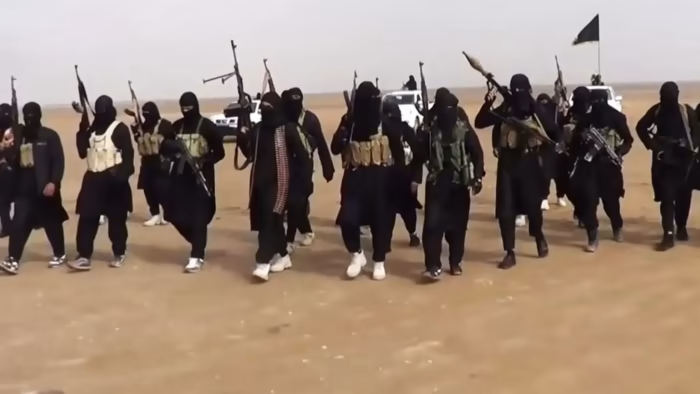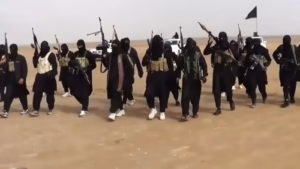
Houthi Missile Hits Near Ben-Gurion Airport, Injures One; Flights Temporarily Suspended
Houthi missile landed in a grove near a Ben-Gurion International Airport access road on Sunday morning, the Israel Defence Forces (IDF) confirmed on Sunday morning. The attack marked the first time a missile had landed inside the airport complex. At least one man was injured in a nearby parking lot. “There is an injured person from the fall near Terminal 3, near the planes,” said the chairman of the Civil Aviation Authority Employees’ Committee following this morning’s Houthi missile attack. Arrivals and departures were suspended while workers checked the runways. The attack triggered sirens across central Israel, including Jerusalem, the…
Global News

Houthi Missile Hits Near Ben-Gurion Airport, Injures One; Flights Temporarily Suspended
Houthi missile landed in a grove near a Ben-Gurion International Airport access road on Sunday morning, the Israel Defence Forces…

Iraq Bans Anti-Iran Groups: Is Baghdad Handing Over Sovereignty to Tehran?
Iraq’s National Security Council, under the direction of National Security Advisor Qasim al-Araji, issued an official order banning all activities…

China’s EV Empire Charges Ahead: Can America Catch Up in the Global Race?
The global automotive industry is undergoing a seismic shift, with electric vehicles (EVs) at the forefront of a revolution in…

A Singular Ally: Why Muslim-Majority Azerbaijan Stands Alone with Israel ?
In a world where the Gaza war has sharply polarized global opinion, particularly within the Muslim-majority nations that overwhelmingly condemn…

Pahalgam Terror Attack: NIA Probe Exposes Lashkar-ISI Nexus, Unveils 3D Mapping Insights
On April 22, 2025, a devastating terrorist attack shook the serene Baisaran meadow, known as “Mini Switzerland,” near Pahalgam in…

Al Jazeera Exposes $10 Billion India-Pakistan Trade Secret Hidden Behind Official Data
Al Jazeera published a groundbreaking report revealing a $10 billion trade secret between India and Pakistan, a figure starkly contrasting…
Important For You
Fruits

American Apple Medley: Navigating the Rich Tapestry of Supermarket Staples and Exclusive ‘Club’ Varieties
Diverse in sweetness, peel color, discovery date, ripening season, origin, and culinary applications, apples offer a multitude of options for…

Pomegranate Power: Discover the Ancient Superfruit’s Health Benefits, Winter Wonders, and Surprising Side Effects!
The pomegranate, scientifically known as Punica granatum, is a captivating and ancient fruit that has delighted palates and held symbolic…

“Winter’s Bounty: A Nutritional Guide to Top-Notch Fruits for Cold-Weather Wellness”
Winter brings a delightful array of fruits that not only tantalize your taste buds but also contribute to your overall…

“America’s Sweet Secret Banana Bonanza: The Magical Fruit with Health Benefits, Delicious Recipes, and Hidden Surprises!”
Bananas, often referred to as the “yellow wonder,” are one of the world’s most beloved and recognizable fruits. These vibrant,…

Wild Berry From Forest to Feast: Epic Recipes You Won’t Believe Exist!
Wild berry is nature’s hidden gem, scattered across forests, meadows, and untamed landscapes, waiting to be discovered by the curious…

Apple Recipes, Surprising Uses, and Potential Side Effects Unveiled!
The apple, scientifically known as Malus domestica, is one of the most beloved and widely consumed fruits in the world….








